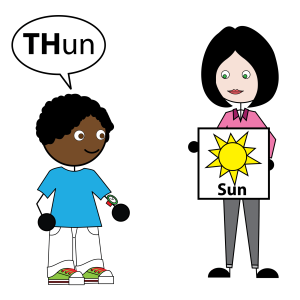
How Clear Should a Child’s Speech Be?
My daughter was 3 years old when I found her upset and crying in her room. I asked her what was wrong, expecting her to tell me that she had hurt herself or her twin sister had done something to annoy her, but she said through her streaming tears “I tan’t bind my tow” and she was absolutely distraught. What she was trying to tell me, was that she couldn’t find her cow, her beloved soft toy that she sleeps with every night.
How many times have you heard your child mispronounce a word? I’m sure every parent will put their hand up and will probably be able to tell you a list of some of the funny things their kids have said. There are tons of videos floating around the internet with kids mispronouncing words like the classic “truck” being mispronounced as a certain swear word. We all find them funny and can usually have a good laugh, but at what point, do you worry that your child’s speech errors are not just funny anymore and actually a sign that there might be a problem with their speech development?
If your child is still mispronouncing words, it doesn’t necessarily mean that it’s a problem as speech errors are a normal part of speech development while kids are learning to talk. But let me help you work out when those speech errors are considered part of normal development and at what point they may not be anymore. Below, you will find a list of ages and stages when it comes to specific speech sound development and when certain errors are expected to resolve on their own, including a free download that you can keep for your own reference.
What is speech?
Before we get into the specific speech errors and their development, I want to ensure that we are all talking about the same topic as there can sometimes be a bit of confusion. When I’m referring to SPEECH development, I mean the speech SOUNDS that children say that has to do with their overall clarity of speech – how well you can understand what they’re saying. LANGUAGE development has to do with a child’s ability to understand and use words (how many words they are saying i.e. vocabulary), follow instructions, put grammatically correct words together to form sentences etc. Many parents think that speech and language are one and the same thing, but they are in fact two very different things (which I’ll talk about in a future blog). So in this blog, we’re talking about the speech sounds, the overall clarity of a child’s speech when they’re talking.
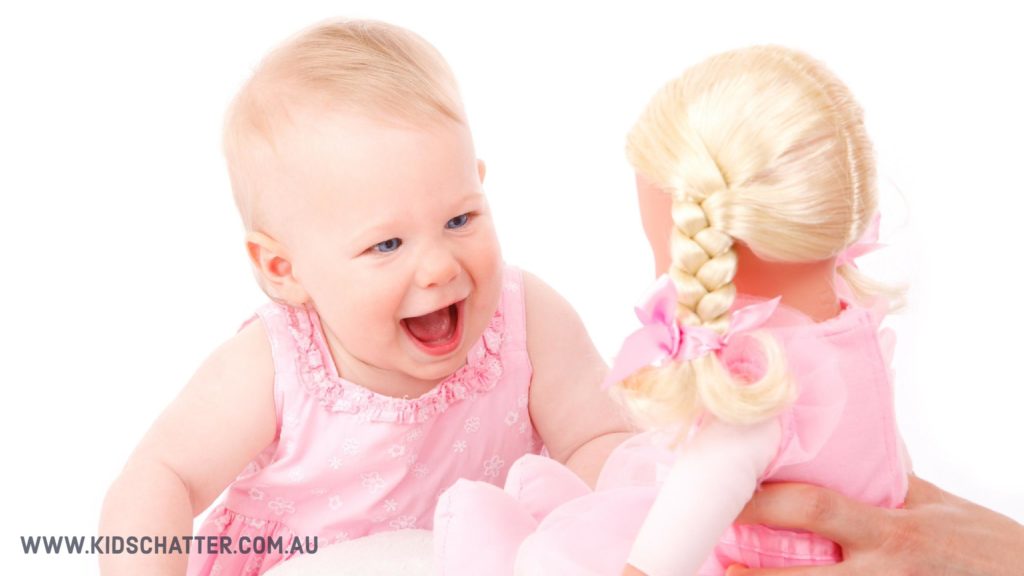
Why do children have speech errors?
The act of using spoken words to communicate is actually quite a difficult skill for children to learn. When babies are born, their main form of communication is by crying. This eventually turns into making noises and babbling and ultimately they start to say words that match what we as adults use every day. We probably take for granted as to how hard this process can actually be. The precise tongue, lip, teeth and jaw movements that we have to use to make certain speech sounds, is a fine art that most of us have perfected, but young toddlers and children are just starting out to learn this skill when they first start to talk. So it is perfectly normal for children to have speech errors when they’re young as they’re working out how to make the sounds. Some speech sounds like /m/, /b/ and /d/ are much easier for children to learn, hence why they tend to develop first, but other sounds like /s/, /r/ and /th/ are much harder and typically develop much later. This is normal! Not every speech sound will be correct from the time children start to talk, because some sounds are simply more difficult to produce and will take more time to learn. It’s when speech errors are still happening after certain ages and/or multiple errors are occurring, that it may become a cause for concern.
What causes speech errors?
In most cases, we don’t know what causes a child’s speech errors. Unless there’s a known disability such as Cerebral Palsy where the muscle movement and strength is affected or children who are born with an anatomical problem such as a Cleft Palate, we don’t always have a clear answer for why some children have speech errors that don’t resolve on their own whereas other children go on to develop clear speech without intervention. In this blog, I’m referring to those kids who do not have a known diagnosis/disability that would be contributing to their ability to learn speech sounds.
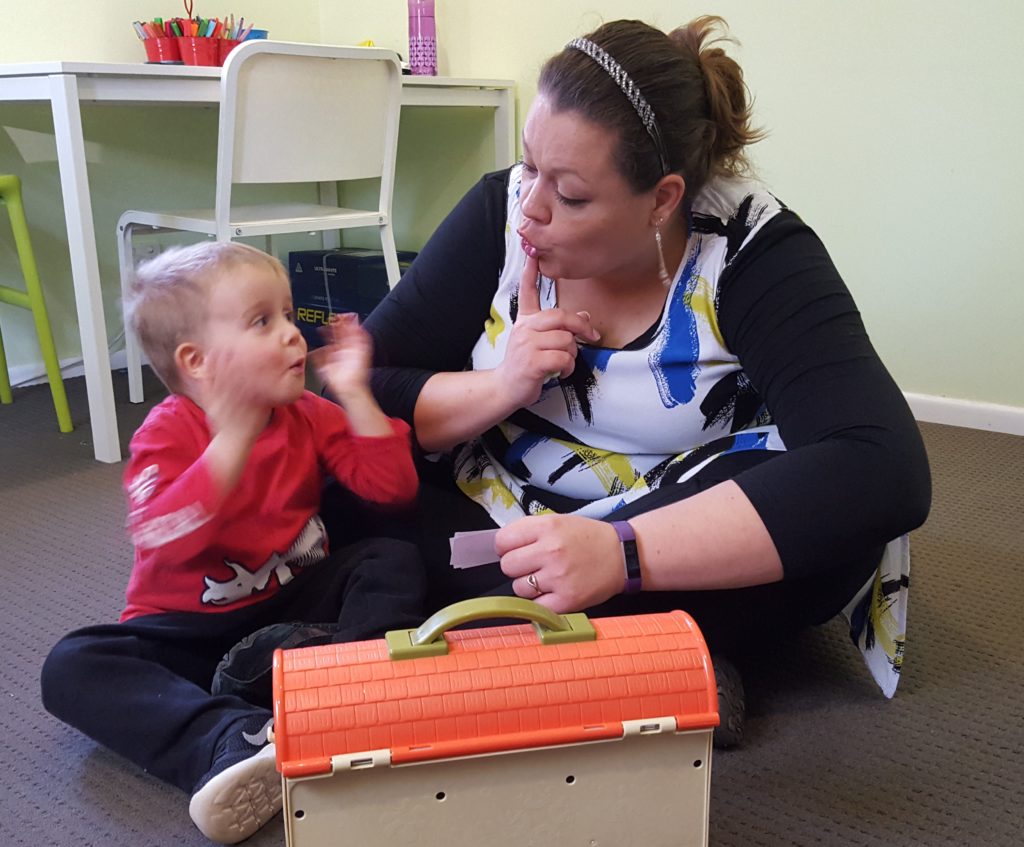
What is normal in a child’s speech sound development?
If you often find yourself having to translate your child’s speech for another person, or perhaps even an older sibling is translating for them, then that’s probably a good indicator that your child’s speech is unclear. Parents, particularly us mums more so than dads (sorry dads, I’m not having a go at you), but more often than not, mums hear their child’s speech all day, every day, so we are much more familiar with our child’s speech than strangers, or family members and friends who don’t see your child every single day. So we don’t always realise how unclear our child’s speech may be to others because we don’t notice it as much. So, if you’re always translating for your kids, take that as a sign that this may need some further investigating by a Speech Pathologist.
As I mentioned before, it is very normal for young children to make speech errors while they’re learning to talk, but let’s look at the overall clarity, or what is also known as speech intelligibility, that we expect at certain ages. Below shows the percentages of how much a stranger i.e. someone who is not familiar with your child’s speech, should be able to understand.
By 1 year of age, an unfamiliar person should be able to understand 25% of a child’s speech
By 2 years of age, an unfamiliar person should be able to understand 50% of a child’s speech
By 3 years of age, an unfamiliar person should be able to understand 75% of a child’s speech
By 4 years of age, an unfamiliar person should be able to understand 100% of a child’s speech
Flipsen, P., Jr. (2006). Measuring the intelligibility of conversational speech in children. Clinical Linguistics & Phonetics. 20(4), 202-312.
Now, that does NOT mean that your child doesn’t have speech errors, all it means is that those errors, aren’t impacting too much on us being able to understand what they’re trying to say. For example, if a child said “tan I pwease have some duice?” you know that they’re saying “can I please have some juice?”. There are 3 speech errors in that sentence, but you can still quite easily make out what he/she was trying to say.
The overall intelligibility of a child’s speech can be affected by their age as younger children typically make more speech errors than older children, but the number of errors a child makes as well as the type of errors can also affect this. There are typical errors that we expect to see in speech development that follows common patterns, but when children make unusual or atypical errors, or they are using multiple errors, that’s when their overall clarity will be decreased even further. There are also different types of speech disorders that children may have. They can have an Articulation Disorder, a Phonological Disorder or some children may have a diagnosis of Childhood Apraxia of Speech (CAS), which is a motor based speech disorder. CAS is quite rare so we will discuss this in more detail in a future blog and for now, we’ll focus on the two most common speech disorders that we see in our Indooroopilly clinic on a daily basis.
What is an Articulation Disorder?
An articulation disorder is where children have difficulties saying a speech sound in isolation. It’s usually due to the incorrect placement of their articulators (tongue, lips, teeth, jaw) which results in a distorted production of the sound. Articulation errors are NOT considered part of typical speech development and may not always resolve on their own. An interdental lisp is an example of an articulation disorder as the tongue sticks out between the teeth when saying the /s/ or /z/ sounds when it should stay behind closed teeth.
The table below shows the ages by which specific speech sounds should have developed. If your child is not yet saying certain sounds by the listed ages or is not producing them correctly, please seek advice from a Speech Pathologist as these children usually require speech therapy intervention to help in correctly saying their sounds.
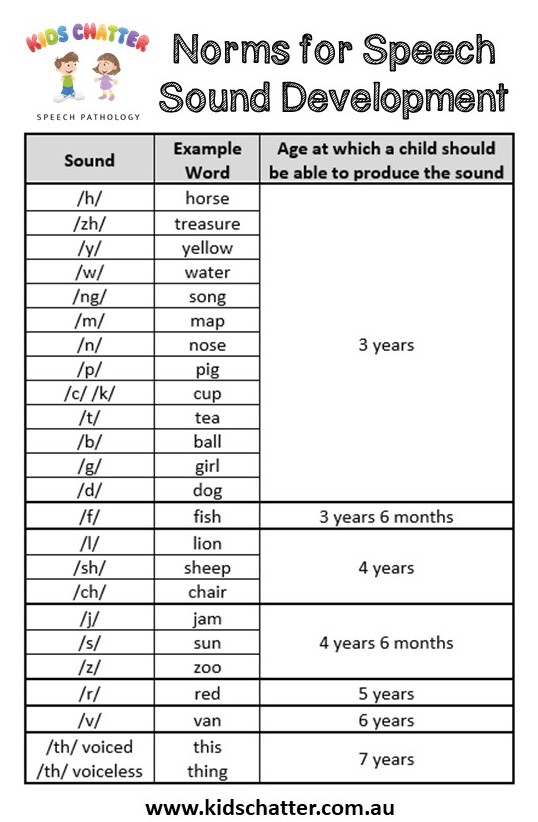
What is a Phonological Disorder?
The other common speech disorder we see in our clinic is a phonological disorder. This is where children often CAN say the individual speech sounds, but when they are saying words and sentences, they are swapping some of their sounds to another sound, or they are deleting sounds in their words. Common ones that you have probably heard children say is “wabbit” instead of “rabbit” or when they’re counting, young kids will often say “one, two, fwee, bour, bibe”. What about “nake” instead of “snake” and “boon” instead of “spoon”.
Sound familiar?
These are all very common and normal errors that we see in kids, up until a certain age. When children continue to use these errors beyond the expected ages, that’s when it would be considered a phonological delay and more often than not, children will need to see a Speech Pathologist to help correct these errors as they do not always grow out of this on their own.
When children produce atypical/unusual phonological processes, that’s when it is a phonological disorder as they are using errors that we do NOT typically expect to see in speech development. For example, children using a process called backing, which is where they produce a sound like /t/ and /d/ and swap it to a /k/ and /g/, so “turtle” become “kurkle” or “dinner” becomes “ginner”, it is a much bigger concern because is it not part of normal speech development. Another pattern that some children will use is called initial consonant deletion, which means that they are deleting the first consonant sounds in all of their words. So for example, “dog” becomes “og” and “car” becomes “ar”. If you hear a child using these errors, it is highly recommended to see a Speech Pathologist as those errors should not occur at any age and they will also significantly affect a child’s overall clarity of speech.
For a full list of phonological speech errors that children make, download our free speech chart here. This chart lists the ages of when we expect those errors to disappear. So if you hear your child making any of the errors and they are older than the age listed and/or they are using multiple phonological errors, please seek advice from a Speech Pathologist.
Do children grow out of speech errors on their own or do all children need speech therapy?
A lot of children will figure out a lot of the speech sounds over time and may correct their errors without any intervention, however, this is not the case for all children. As mentioned above, it all depends on a child’s age, the type of errors and how many errors they make as to whether or not speech therapy is warranted. And if you have any concerns yourself, the best thing you can do is ask a Speech Pathologist for advice as speech development is a very complex process.
The most important piece of advice I can give you though, is not to ignore speech errors and just assume that children will grow out of it, because not all children do. If left untreated, speech sound errors can affect a child’s phonological awareness, reading, spelling and writing skills and can also have a huge impact on their confidence, social skills in the playground with their friends, withdrawal from educational tasks such as not wanting to speak in front of their peers or asking/answering questions, or having difficulties making new friends in fear of being ridiculed or bullied.
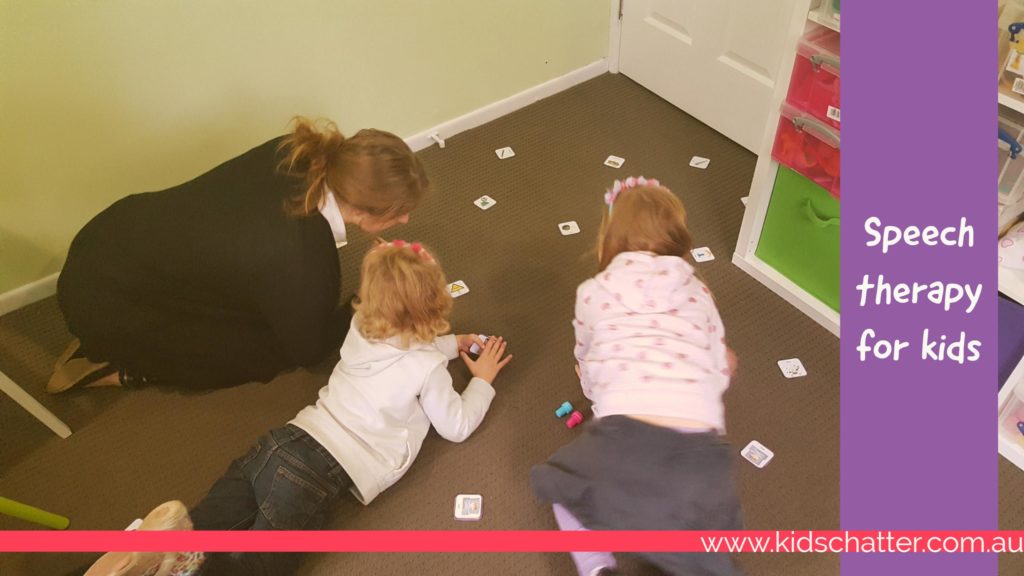
Thankfully, there are lots of things a Speech Pathologist can do to help your child to prevent ongoing speech difficulties, but it starts with listening to your child’s speech and taking action on seeking advice from a Speech Pathologist when their errors are not resolving on their own. Remember to download your free copy of our speech chart and contact us if you have questions or concerns about your child’s speech.

BA, MSpPathSt, CPSP, MSPA
Speech Language Pathologist
Monique Speakman is a Paediatric Speech Pathologist in Brisbane with over 14 years experience, mother of a son and twin daughters, business owner and blogger. She aims to educate parents about child development and communication through the Kids Chatter Speech Pathology Blog and Facebook Page and to provide information and tips on anything to do with Speech Pathology.

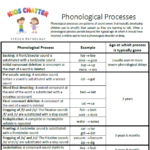
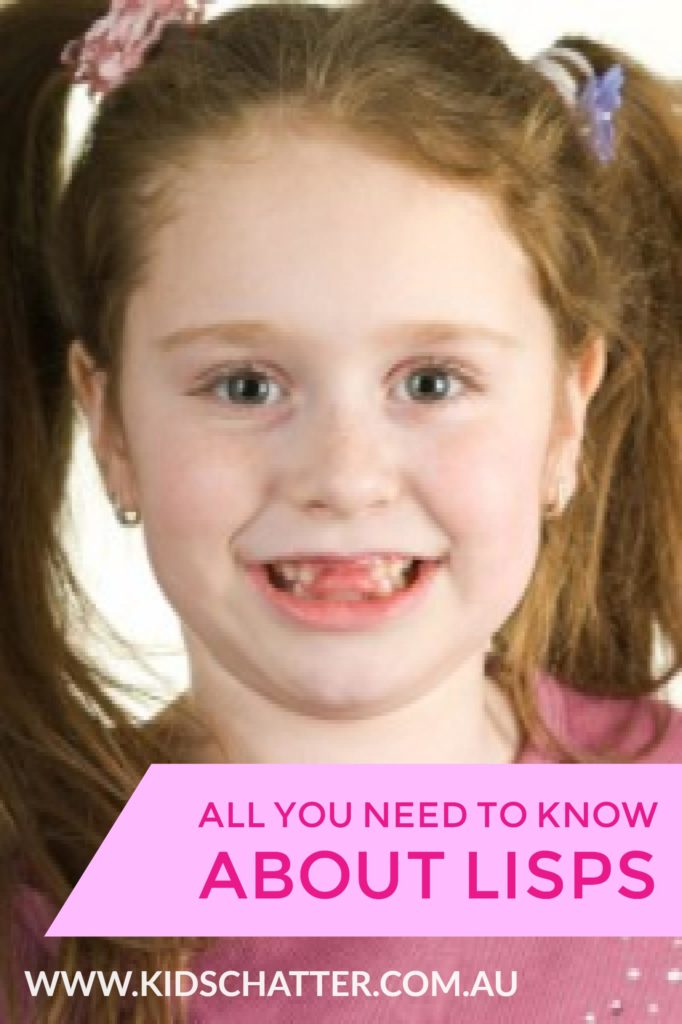
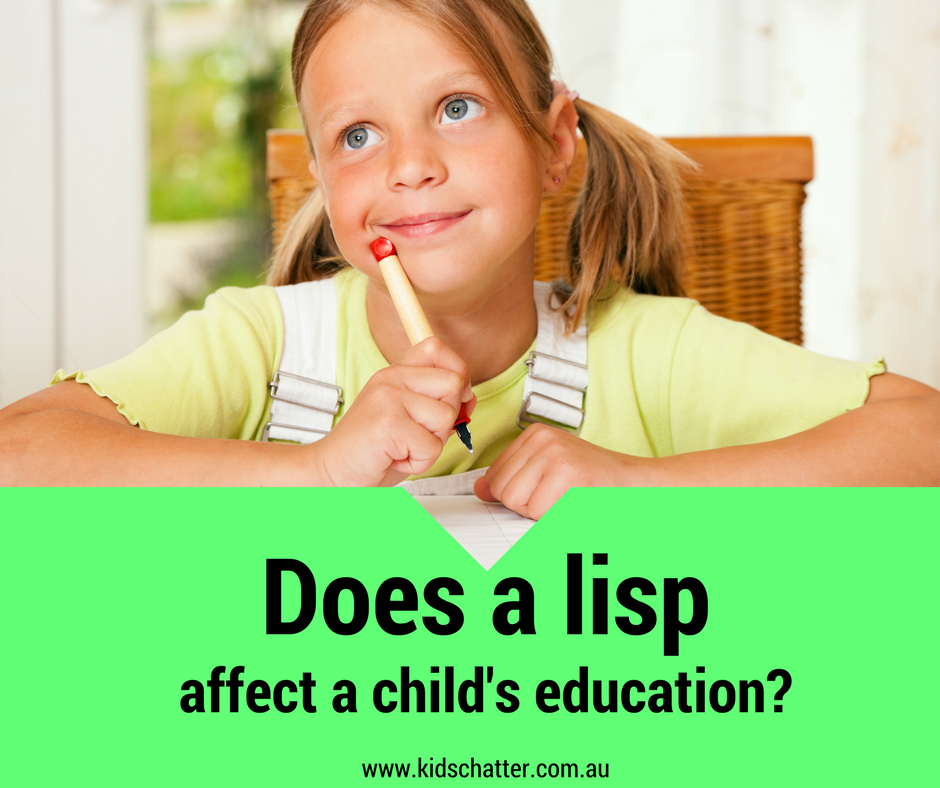


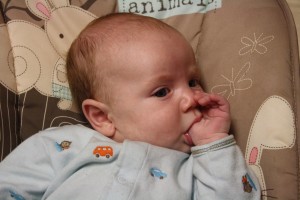 Thumb sucking can vary greatly between individual babies. Some babies suck their thumb often while other babies show little interest in doing so. The need for sucking tends to decrease around six months of age when they start eating solids and usually lessens or completely stops around 12 months of age. Thumb sucking is normally little cause for concern regarding dental development up to the age of 12 months. However, after the age of two, thumb sucking can be a problem.
Thumb sucking can vary greatly between individual babies. Some babies suck their thumb often while other babies show little interest in doing so. The need for sucking tends to decrease around six months of age when they start eating solids and usually lessens or completely stops around 12 months of age. Thumb sucking is normally little cause for concern regarding dental development up to the age of 12 months. However, after the age of two, thumb sucking can be a problem.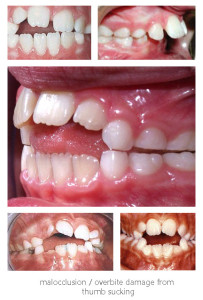


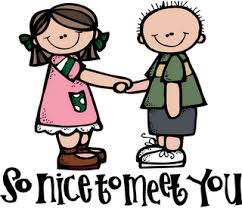 So most companies who have a website for their (small) business, will usually put up a page about their staff members and write a little about each person. We have a
So most companies who have a website for their (small) business, will usually put up a page about their staff members and write a little about each person. We have a 